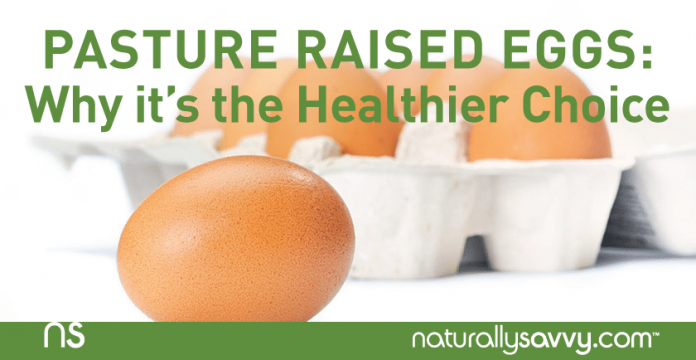
Today’s consumers are faced with a number of choices, especially when it comes to purchasing eggs. There are several different types of specialty eggs and not all are created equal.
The many different terms found on the carton “cage-free,” “free-range,” “omega 3,” “organic,” “pasture-raised” can be a bit overwhelming and confusing, even for the well-informed shopper. What do they all mean and is there any difference in the quality of the eggs?
The term Cage Free has been in use for several decades and has traditionally meant the hens were housed in a barn with no cages. Traditional cage-free operations allow the chickens to walk, roam, spread their wings, perch, dust bathe and lay their eggs in a nesting box, which are all natural behaviors for a chicken. Recently though, largely due to new regulations in California, the definition of cage free has become a bit muddled. Although many news outlets are calling the new law “cage-free,” the reality is, the law merely increased the size of the cages allowed.
Certified Humanedefines Free Range as each hen having at least 2 square feet per hen outside. However, if the eggs are not Certified Humane, the poultry industry only defines free range as having outdoor “access” and is not regulated.
In Omega 3 eggs, the hens are eating a specialized feed in which omega 3 rich grains or seeds and/or oils are added.
Organic is defined as not being treated with antibiotics or hormones and receiving organic feed and only USDA certified Organic eggs meet extra specifications.
Pasture-Raised Eggs come from hens raised outside on pasture large enough that they can roam and forage for grasses and insects.
While all of these options are definitely a step in the right direction and an improvement over conventional battery caged eggs, which is the better choice?
Nutritionally and humanely, pasture-raised eggs appear to be the clear winner. This lifestyle is much better for the hens who are allowed to peck, dust bathe, eat grass and bugs, and stretch their wings. Not surprisingly, there is also remarkable improvement to the quality of eggs.
This fact is backed up with a study done by Mother Earth News in 2007, which included 14 pastured flocks across the country. They found that compared to commercial flocks, eggs coming from pastured flocks contained: 1/3 less cholesterol, 1/4 less saturated fat, 2/3 more vitamin A, 2 times more omega-3 fatty acids, 3 times more vitamin E, and 7 times more beta carotene!
There are numerous other studies that support the findings published in Mother Earth news. As early as 1974, the British Journal of Nutrition reported that pastured eggs had as much as 50 percent more folic acid and an impressive 70 percent more vitamin B12 as conventional eggs. Animal Feed Science and Technology published a study in 1998 that found higher levels of Omega-3 fatty acids and vitamin E in pastured eggs as compared to caged eggs.
When it comes to egg choices, the American consumer has many. If your local grocer is not carrying the brand or type of eggs you want to buy, take the time to talk to your local grocery’s dairy manager. More and more grocers have options when it comes to carrying specialty eggs and will often begin to stock them if customers ask. Giving you the power to find the products you desire without any shake-up to your normal routine.
Written by Sherrill Martin for Nature’s Yoke, a family owned and operated egg producer, committed to bring small family farms together in the Central PA area.




